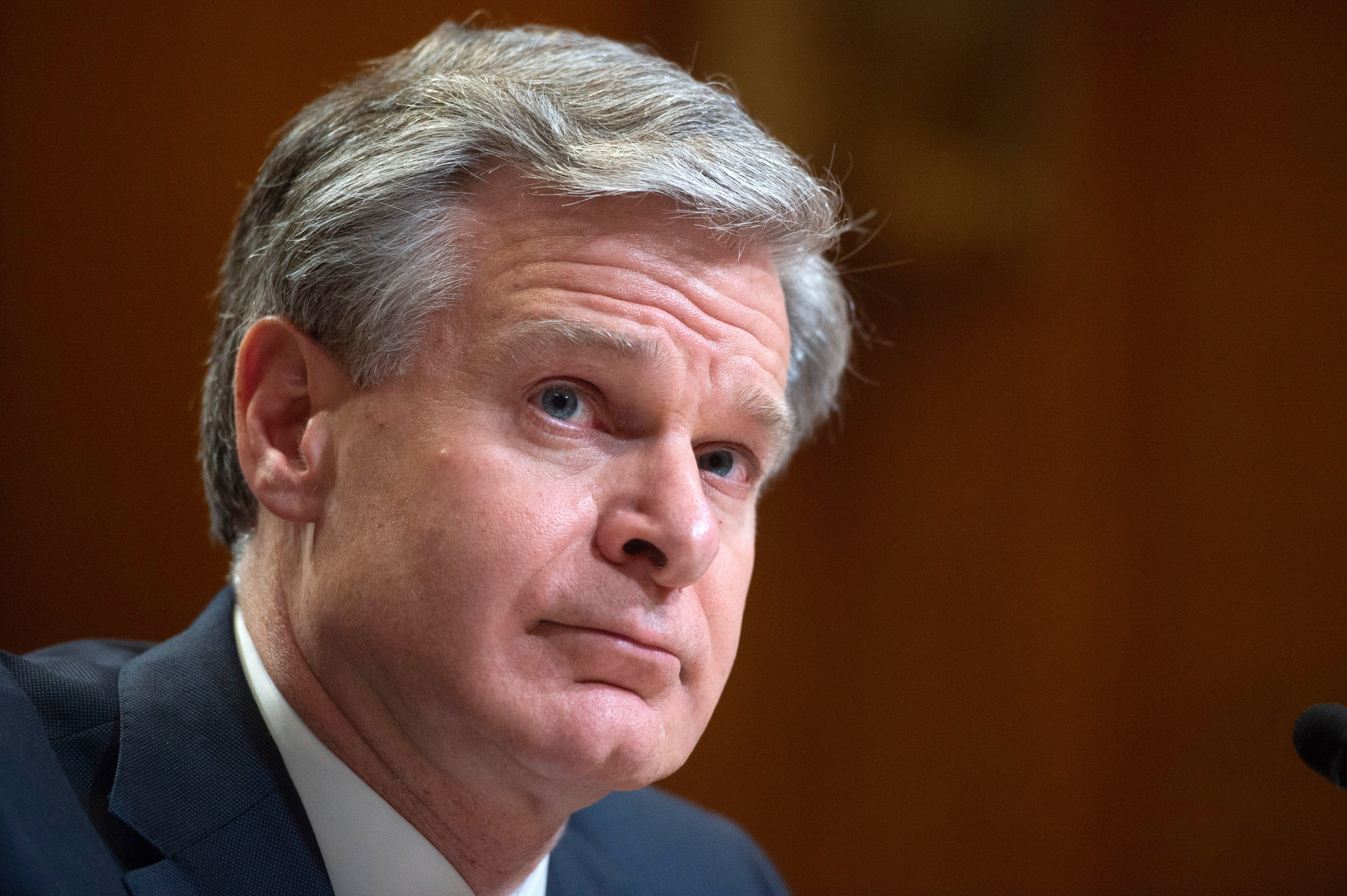US, UK leaders raise fresh alarms about Chinese espionage
The FBI director and the leader of Britain’s domestic intelligence agency are raising alarms about the Chinese government, warning business leaders that Beijing is determined to steal their technology for competitive gain

Your support helps us to tell the story
From reproductive rights to climate change to Big Tech, The Independent is on the ground when the story is developing. Whether it's investigating the financials of Elon Musk's pro-Trump PAC or producing our latest documentary, 'The A Word', which shines a light on the American women fighting for reproductive rights, we know how important it is to parse out the facts from the messaging.
At such a critical moment in US history, we need reporters on the ground. Your donation allows us to keep sending journalists to speak to both sides of the story.
The Independent is trusted by Americans across the entire political spectrum. And unlike many other quality news outlets, we choose not to lock Americans out of our reporting and analysis with paywalls. We believe quality journalism should be available to everyone, paid for by those who can afford it.
Your support makes all the difference.The head of the FBI and the leader of Britain’s domestic intelligence agency raised alarms Wednesday about the Chinese government, warning business leaders that Beijing is determined to steal their technology for competitive gain.
FBI Director Christopher Wray reaffirmed previous concerns in denouncing economic espionage and hacking operations by China as well as the Chinese government’s efforts to stifle dissent abroad. But his speech was notable because it took place at MI5’s London headquarters and alongside the agency’s director general, Ken McCallum, in an intended show of Western solidarity.
It also showed the extent to which Wray and the FBI regard the Chinese government as not only a law enforcement and intelligence challenge, but are also attuned to the implications of Beijing's foreign policy actions.
“We consistently see that it’s the Chinese government that poses the biggest long-term threat to our economic and national security, and by ‘our,’ I mean both of our nations, along with our allies in Europe and elsewhere,” Wray said.
Officials described it as the first time that leaders of the FBI and MI5 had shared a stage for a joint speech.
McCallum said the Chinese government and its “covert pressure across the globe” amounts to “the most game-changing challenge we face.”
“This might feel abstract. But it’s real and it’s pressing,” McCallum said. “We need to talk about it. We need to act.”
A spokesperson for the Chinese Embassy in Washington did not immediately return an email seeking comment.
In a nod to current tensions between China and Taiwan, Wray said any forcible takeover of Taipei by Beijing would “would represent one of the most horrific business disruptions the world has ever seen."
Last week, the U.S. government’s director of national intelligence said there were no indications Chinese President Xi Jinping was poised to take Taiwan by military force. Avril Haines did say Xi appeared to be planning for that potential action as part of a broader goal of reunification of Taiwan.
After the appearance with his British counterpart, Wray said that he would leave to others the question of whether an invasion of Taiwan was more or less likely after Russia's invasion of neighboring Ukraine. “I don't have any reason to think their interest in Taiwan has abated in any fashion,” Wray said, adding that he hoped China had learned what happens “when you overplay your hand,” as he said the Russians have done in Ukraine.
The FBI director said there are signs the Chinese, perhaps drawing lessons from Russia's experience since the war, have looked for ways to “insulate their economy” against potential sanctions.
“In our world, we call that behavior a clue,” said Wray, who throughout his speech urged caution from Western companies looking to do business in or with China. He said Western investments in China could collapse in the event of an invasion of Taiwan.
“Just as in Russia, Western investments built over years could become hostages, capital stranded (and) supply chains and relationships disrupted,” he said.
President Joe Biden said in May that the U.S. would respond militarily if China invaded Taiwan, offering one of the most forceful White House statements in support of Taiwan’s self-governing in decades. The White House later tried to soften the impact of the statement, saying Biden was not outlining a change in U.S. policy toward Taiwan, a self-governing island that China views as a breakaway province that should be reunified with the mainland.
____
Follow Eric Tucker at http://www.twitter.com/etuckerAP